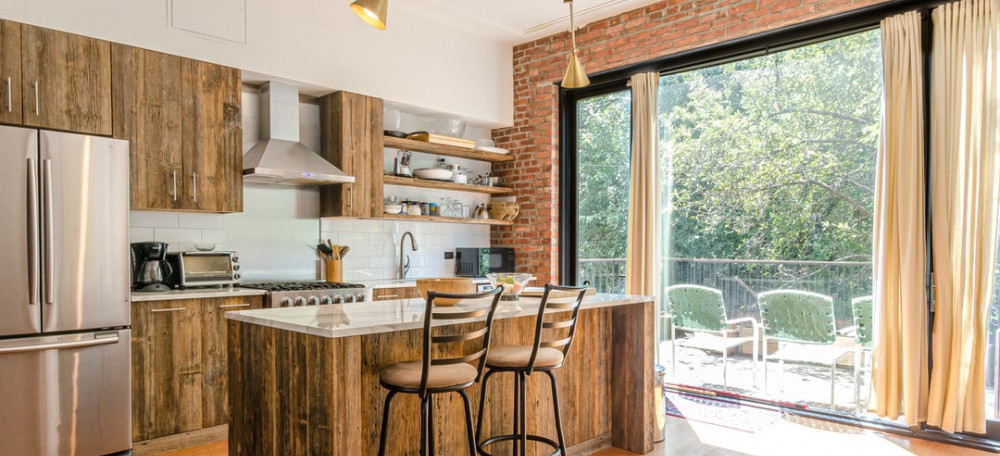How To Buy A Foreclosure?

By buying a foreclosed home, you can score a great deal during a time when deals are hard to find. “The advantage of purchasing a foreclosure property is, in short, price,” says John Soffee, a Realtor with Freedom Realty Services in Midlothian, Virginia. However, the process is more nuanced than buying a traditional listing, and it’s important to remember that foreclosures are currently at record lows. Many lenders have stopped foreclosing during the coronavirus pandemic, and generous forbearance programs allow troubled borrowers to skip payments for up to a year. It’s possible, though, that foreclosure levels will tick up in 2021. If you’re wondering how to buy a foreclosed home, consider this your primer.
What is a foreclosure?
A foreclosure is when a lender files a lawsuit against the borrower to repossess the property, and the borrower then has 90 days to appeal. The foreclosure sale is when the bank auctions the home to a third party, usually a real estate investment trust or institutional investor. In many states, there’s a maximum waiting period for the sale of a foreclosed home. The typical waiting period is 90 days. In South Dakota, Virginia, Maryland, and Pennsylvania, there’s also a six-month “cool off” period after which you cannot purchase a foreclosure home. In Virginia, the law allows for “qualifying relatives” — spouses, children, grandparents, and siblings — to purchase foreclosed properties as long as they do not live in them, Soffee says.
Pros of buying a foreclosure
The two main advantages to purchasing a foreclosure: Price — You can save big on the purchase price of a home. For example, a two-bedroom, two-bath home that’s currently valued at $140,000 might sell for only $90,000 after bankruptcy sales and other escrow-backed deals are paid off. The foreclosure can easily bring that price down to as little as $85,000. “People can find foreclosed properties under $50,000,” Soffee says. Inspection — “Many buyers shy away from foreclosure homes because they’re at risk of a major sewer line collapse or structural problems,” Soffee says. “Those are things they just won’t stand for. However, if you know your inspector well, you can make sure the home passes an inspection.” — Anna Jean Kaiser is a publicist.
Cons of buying a foreclosure
“Properties that come with bankruptcy (court) judgments may have conditions attached, such as requiring closing within 45 days,” says Gary Bose, who co-authored “Buying Foreclosed Homes: The Ultimate Guide to Home-Buying and Remodeling,” with his son, Gary Bose Jr. “These conditions can impose a substantial cost, since you have to submit your proof of funds to the Bankruptcy Court, typically within a day of purchasing the home. Some creditors might call you to check on your cash flow in that time,” says Gary Bose. “Another option is to create an escrow account to handle these small payments.” Foreclosure, even a short-term situation, isn’t cheap. “The owner has to put down 20% on the cost of the home,” says Soffee. “For most buyers, that’s more than the original asking price.
This post contains affiliate links. Please please read my Disclaimer for more information
How to Find Foreclosed Homes
Foreclosures come up at the end of the market, not at the beginning, according to Ms. Nyberg. It’s much easier to find foreclosed homes at the end of the market because lenders usually avoid marketing to desperate sellers and are instead focused on a buyer pool that’s already lined up. Foreclosures are also more difficult to find when they’re bought by investors or speculative buyers. These are the people who buy and hold properties, generating cash by renting them out, which means they can often pay much higher rents than they’re actually paying.

Find an experienced real estate agent
So, how do you find a foreclosure home? “It takes time and determination,” says Soffee. Typically, you need an experienced real estate agent who specializes in the foreclosure market and is familiar with every “mechanism” of a lender’s foreclosure process. With the help of the agent, you should visit the listing multiple times, day and night, so you can familiarize yourself with the property, the surroundings, and the neighborhood, including everything from curb appeal to crime rates. Before you start the inspection process, it’s important to ask questions and make sure you know how much a property is worth so you don’t find yourself overpaying. Also, if you can’t verify its condition on your own, get a professional inspection.
Get a preapproval letter
To get a preapproval letter from a lender, check out the Foreclosure Registry at Bankrate.com. The site has links to mortgage lenders and foreclosure paperwork that can be used to get a loan from a bank before the loan gets under contract. Once the borrower has an appraisal and lender preapproval, they can put a sign in the yard and begin an open house, then begin marketing the house. The buyer will pay a low-interest mortgage, and the bank will take back the home from the borrower after nine months or the homeowner’s death. The first mortgage loan is called the “Title Agent,” and the seller has the mortgage. After nine months, the buyer pays back the Title Agent, and the bank takes back the home.
Look at comps before making an offer
Comparing the value of a foreclosed home to similar homes in the neighborhood will help you gauge whether it’s a good deal. If you see a house that has been recently foreclosed, ask a Realtor to check the past sales history of comparable properties, says Soffee. He notes that this comparison doesn’t ensure that a foreclosed home is a good deal, but can give you an idea of whether you could get a good price on the property. On the flip side, don’t dismiss a foreclosure simply because it’s been in foreclosure. “One of the things we often see is that people are under the false assumption that foreclosures are foreclosed,” says Soffee. “Even if it has been foreclosed, it is not considered to be vacant, so you could potentially see another buyer come in and put it on the market.
Bid higher if other foreclosures are selling quickly
If your mortgage is falling due on another house, you might want to bid higher if another foreclosure has yet to sell. “The process is so slow right now, and it would help me when a foreclosure comes on,” says Janice Smith, a Realtor in Portsmouth, New Hampshire. Keep in mind, however, that if you bid too high and the home goes to another bidder, your offer may be canceled. “If the owner can get a better price before you, they will often cancel your offer and just go to the other bidder,” Soffee says. Make sure the home is a good investment. Any homeowner who lived in a house can tell you that you can’t let the value of your house erode. “You have to stay in the home,” Smith says.
Be prepared to buy a foreclosed home in ‘as-is’ condition
“Buyers should look for solid construction,” says Kris Winegarner, a Realtor with the Carson Group. That means it’s going to take an inspection, of course, and not every lender will accept buyers that have been slapped with a deficiency notice, which is a temporary mistake that can occur if the borrower is short on the down payment or income to afford the mortgage. Additionally, it’s very likely that you’re going to have to take out a mortgage loan, which means you’ll need to have the proper down payment, credit score, and income for the mortgage. “Buyers should do their due diligence to be prepared to assume this potential risk,” says Winegarner. “But with the right lender and mortgage rate, it can be a very lucrative venture.

Conclusion
The housing market is slowly recovering, but that recovery is very much a patchwork of ups and downs. Some neighborhoods are booming and some aren’t, and it pays to be prepared. The following information can help you find, buy and manage a foreclosure property with peace of mind.
“If you have any feedback about how to buy a foreclosure that you have tried out or any questions about the ones that I have recommended, please leave your comments below!”
NB: The purpose of this website is to provide a general understanding of personal finance, basic financial concepts, and information. It’s not intended to advise on tax, insurance, investment, or any product and service. Since each of us has our own unique situation, you should have all the appropriate information to understand and make the right decision to fit with your needs and your financial goals. I hope that you will succeed in building your financial future.
Daniel Tshiyole
What is better, buying a foreclosure house or paying for a house full. I have always told myself that the day I do decide to buy myself a house, I want to pay for it in full. If not then I will try out a floreclosure. I had not known what a foreclosure was until today.